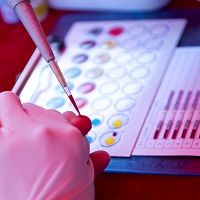Researchers to Study Biomarkers for Early Detection of Diabetic Kidney Disease
As part of a multi-institutional effort, researchers in the fields of proteomics, lipidomics, and metabolomics will collaborate to discover more effective ways of predicting which patients with type 1 diabetes are at greater risk for developing kidney disease.

As part of a multi-institutional effort, researchers in the fields of proteomics, lipidomics, and metabolomics will collaborate to discover more effective ways of predicting which patients with type 1 diabetes are at greater risk for developing kidney disease.
In a news release announcing the collaboration, principal investigator Kumar Sharma, MD, professor of medicine and director of the Center for Renal Translational Medicine and the Institute of Metabolomic Medicine at UC San Diego School of Medicine, said, “We want to identify the best markers of kidney disease progression and validate them across different patient cohorts.”
With diabetic kidney disease being the leading cause of end-stage renal disease, and with more than 25 million US adults suffering from kidney disease, there is an immense need for tests that could enable earlier and more accurate identification of patients at risk for diabetic kidney disease.
According to Sharma, “The current test, measuring albumin protein levels, is not an ideal biomarker in that some patients may still have progressive kidney disease with low levels of albumin in their urine.”
According to the news release, researchers from three universities will analyze blood and urine samples from more than 2,000 patients with type 1 diabetes:
- Researchers at UC San Diego School of Medicine will conduct metabolomics analysis “to look for metabolites that may serve as chemical signatures of kidney disease”
- Researchers at the University of Washington at Seattle will conduct proteomic analysis to “look for proteins that may be predictive of diabetic kidney disease”
- Investigators at the University of Michigan will conduct lipidomic analysis of lipids in the patient samples